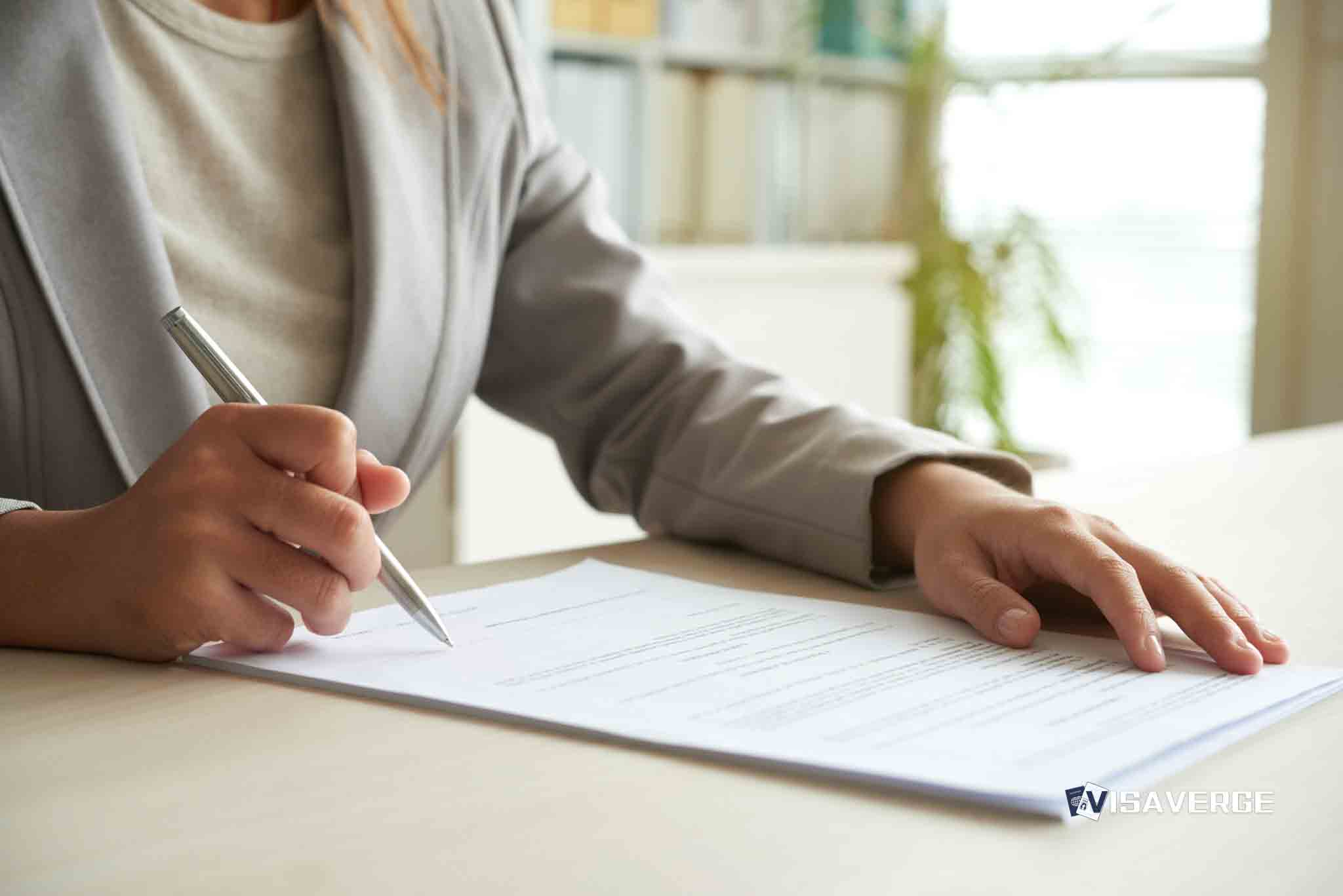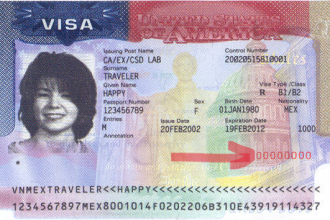A B2 Visa applicant from India recently shared his experience online after being denied a tourist visa at the U.S. Consulate in Kolkata. The officer rejected his application under Section 214(b) of the Immigration and Nationality Act, saying he failed to show strong enough ties to India. The applicant claims the officer did not check any of his supporting documents, even though he brought proof of employment, an invitation letter, and evidence of family ties.
This case highlights a common frustration among B2 Visa applicants: many feel that consular officers make decisions quickly and sometimes without reviewing the documents applicants carefully prepare. As of July 31, 2025, this practice remains standard at U.S. consulates, especially in high-volume locations like Kolkata, Mumbai, and New Delhi.

Interview Details and Applicant’s Experience
The applicant described his interview in detail. After a polite greeting, the officer asked for his passport and confirmed his fingerprint scan. The officer then asked why he wanted to visit Washington. The applicant explained he planned to visit his brother and sister-in-law for tourism. The officer also asked about his travel history and job. The applicant replied that he had visited Dubai and Malaysia before and worked as a data engineer at a multinational company, earning ₹30,000 a month, with extra income from a family business.
Despite having all his documents ready—including an invitation letter from his brother in Seattle and proof of employment—the officer did not ask to see any of them. Instead, the officer typed a letter and told him, “Sorry, under this circumstance we cannot process your visa.” The official reason given was that he did not show strong enough ties to India.
The applicant expressed his frustration online, saying, “The officer did not ask for my invitation, cover letter, nothing… just mentioned the reason of rejection as not able to demonstrate ties to home country.” Many other applicants shared similar stories, saying they also felt the process was inconsistent and unclear.
Understanding Section 214(b) and “Strong Ties”
Section 214(b) of the Immigration and Nationality Act is a rule that affects all B2 Visa applicants. It says that every applicant is presumed to want to immigrate to the United States 🇺🇸 unless they can prove otherwise. To get a B2 Visa, applicants must show strong ties to their home country—such as family, a steady job, property, or financial responsibilities—that would make them return after their visit.
Consular officers have the power to decide if these ties are strong enough. They often base their decision on the applicant’s answers during the interview, not just on documents. Officers may choose not to review any paperwork if they feel the applicant’s responses do not meet the standard for approval. This policy aims to prevent fraud and keep the process quick, but it can leave applicants feeling powerless.
Current Practices and No Major Changes in 2025
As reported by VisaVerge.com, there have been no new changes to B2 Visa interview procedures or the Section 214(b) standard in 2025. The U.S. Department of State continues to give consular officers broad discretion to decide if an applicant has strong enough ties to their home country. Officers are trained to make decisions quickly, often within minutes, and are not required to review documents unless they have specific doubts or need more information.
Legal experts and immigration attorneys confirm that this approach is consistent with official policy. They advise applicants to focus on giving clear, honest, and confident answers during the interview. While it is important to bring all supporting documents, applicants should not expect that officers will always look at them.
What Applicants Should Know and Do
For those planning to apply for a B2 Visa, here are some practical tips:
- Prepare all documents: Bring your passport, appointment confirmation, DS-160 confirmation, employment letter, bank statements, invitation letter, and any other proof of ties to your home country. You can find the official DS-160 form here.
- Practice your answers: Be ready to explain clearly why you want to visit the United States 🇺🇸, what you do for work, and what family or responsibilities you have at home.
- Be concise and confident: Officers prefer short, direct answers. Avoid giving too much detail unless asked.
- Do not expect document review: Understand that the officer may make a decision based only on your answers and overall profile.
- Know your rights: There is no formal appeal process for Section 214(b) denials, but you can reapply if your situation changes or if you can show stronger ties.
Step-by-Step B2 Visa Interview Process
- Submit your application: Complete the DS-160 form, pay the fee, and schedule your interview.
- Prepare your documents: Gather all necessary paperwork, even if it may not be reviewed.
- Attend the interview: Answer questions about your travel plans, work, family, and ties to your home country.
- Receive a decision: The officer will approve or deny your visa, often on the spot. If denied under Section 214(b), you will get a standard refusal letter.
- Consider reapplying: If denied, you can apply again at any time, but you should be able to show new or stronger ties.
Community Reactions and Ongoing Frustrations
Many applicants and community members continue to express frustration about the lack of transparency in the B2 Visa process. Some feel that decisions are arbitrary, especially when officers do not review documents. Approval rates and interview experiences can vary widely, even for similar profiles. Immigration attorneys and advocacy groups continue to call for more transparency, but the U.S. government says officer discretion is necessary to prevent fraud and keep the process efficient.
Official Resources and Where to Get Help
For the most up-to-date information, applicants should visit the U.S. Department of State – Bureau of Consular Affairs website. This site provides official policy updates, appointment scheduling, and answers to common questions.
Looking Ahead
As of July 31, 2025, there are no expected changes to the B2 Visa interview process or Section 214(b) rules. Applicants should continue to prepare carefully, focus on clear answers, and understand that denials are common and not appealable. Reapplication is possible, but success depends on showing stronger ties or changed circumstances.
By staying informed and prepared, applicants can improve their chances, even in a process that sometimes feels unpredictable.
Learn Today
B2 Visa → Nonimmigrant tourist visa allowing travel to the U.S. for leisure or visiting relatives.
Section 214(b) → Immigration law presuming visa applicants want to immigrate unless strong home ties are shown.
Consular Officer → A government official who conducts visa interviews and decides visa eligibility.
Strong Ties → Family, job, financial, or property connections proving a visa applicant’s intent to return home.
DS-160 → Online nonimmigrant visa application form required for U.S. visa interviews.
This Article in a Nutshell
A B2 visa applicant from India was denied due to unexamined documents and insufficient proof of ties to India, highlighting interview-focused decisions, no review policy, and ongoing frustrations with U.S. consulates’ handling of tourist visas in 2025.
— By VisaVerge.com













